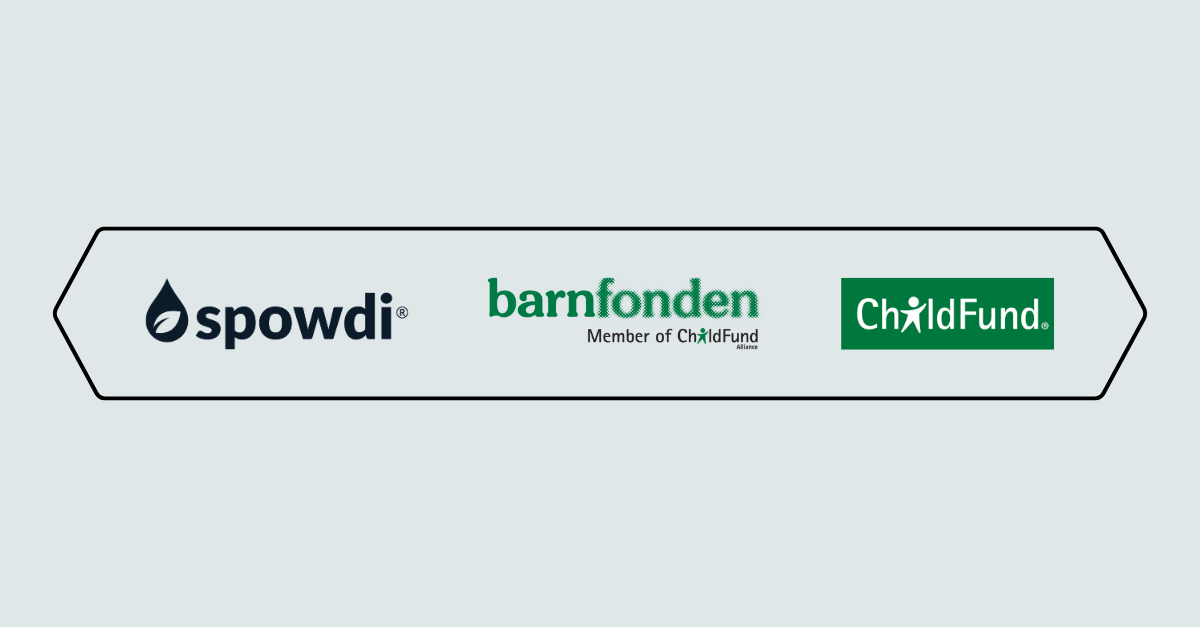How do we enable small-hold farmers to become Impact Generators and what is the climate & economic cost if we don’t?
At the World Water Week session on ‘Resilient Food Production & Water: Small-hold Farmers as Impact Generators’, representatives from IFC, Spowdi and Barnfonden held an open discussion on the pressing issue of the climate impact on food production and the urgency to build a climate resilient food production system, focusing on the pivotal role that small-hold farmers play in food production. Responsible for producing a third of the world’s food, these small-hold farmers are a cornerstone of the global food production system.
The session brought to the fore a critical point: if we are to avoid a future crisis in global food security and of water stress, the transformation of small-hold farming is critical – and it needs to happen now. Small-hold farmers must have access to profitable, sustainable, and climate-resilient farming practices. Their livelihoods depend on it, and so does the food security of billions around the world. During the session, Barnfonden’s Martina Hibell stressed the importance of acting now and innovative solutions:
“We talk a lot. We have to walk the talk, and maybe start looking at the financing aspect a little bit differently. It’s not business as usual anymore, because the world is not business as usual. So, how can we change that? How can we dare to take a bit more risks, start trying, see what works, and scale it?”
The urgency of collaborative efforts to address these challenges, along with bringing together perspectives from various stakeholders was further emphasized during the panel discussion. Participating speakers were Richard Colback, Global Lead of Sustainable Crop Production at IFC, and Martina Hibell, Secretary General at Barnfonden, who shared their insights and expertise regarding small-hold farmers and how important access to innovative technologies is. As they joined Spowdi’s CEO Henrik Johansson and Rupali Mehra, Chief Marketing Officer and Head of Asia, the discussion brought forward the importance of innovative financing, patient capital and risk mitigation.
“We must be much more precise in telling what’s missing, and challenge others that we think sit on what’s missing. Telling them ‘This is what is needed here and now’ and invite people to understand exactly what is needed, not just overall in words”, said Henrik Johansson when discussing what is needed in order for collaborative efforts to actually scale and result in real impact.
“The levels of risk are very different … There is a need, not just to have the equipment, but to take some of the risk away. Whether it’s better training, whether it’s insurance, or other things. But I think that point about risk is critical”, said Richard Colback, IFC, discussing why the high level of risk must be mitigated in order for small-hold farmers to take the leap.
Through powerful first-person testimonials, the session shared the stories of small-hold farmers who have already made the transition to Smart Farming. They provided impactful evidence of how innovative technologies can transform small-hold farming – increasing productivity and sustainability while also creating resilience against climate change. Yet, these success stories also shine light on the problematic gap between those who can access these technologies and those who cannot.
“Together, we can be Impact Enablers; technology providers, finance and governance multilateral organizations, and implementing organizations. But ultimately, it is the small-hold farmer who is the true Impact Generator. And for that, we all need to come together and act fast, act at scale, and really accelerate what we are doing to future-proof global food production”, stated Spowdi’s Rupali Mehra.
The message from the session was clear: the time to act is now and collaborative action is required from Impact Enablers including technology providers, financing institutions and last mile implementing organisations to empower small-hold farmers to become Impact Generators.
Explore other Spowdi news articles
August 21, 2025
ChildFund, Barnfonden, and Swedish Greentech Company Spowdi Empower 470 Smallholder Farmers – a First Scalable Rollout for Regenerative Agriculture and Entrepreneurship
In a critical step to support smallholder farmers facing severe effects of climate change, ChildFund International, Barnfonden, and Swedish greentech company Spowdi are partnering to equip 470 farms in Kenya with solar-powered…
May 27, 2025
Spowdi Establishes Its First African Subsidiary – A Milestone In Accelerating Smart Farming Across East Africa
Swedish greentech company Spowdi today announces the launch of Spowdi Africa Ltd, a new subsidiary based in Nairobi, Kenya. The entity marks a major step forward in Spowdi’s commitment to empower smallholder farmers…
November 28, 2024
COP29: Future-proofing Food Production via a Proven Business Case
300% more food, 80% water saved, higher profitability for the farmer The urgency to transform the agri-food systems is clear from discussions and negotiations at COP and previous climate conferences.…


